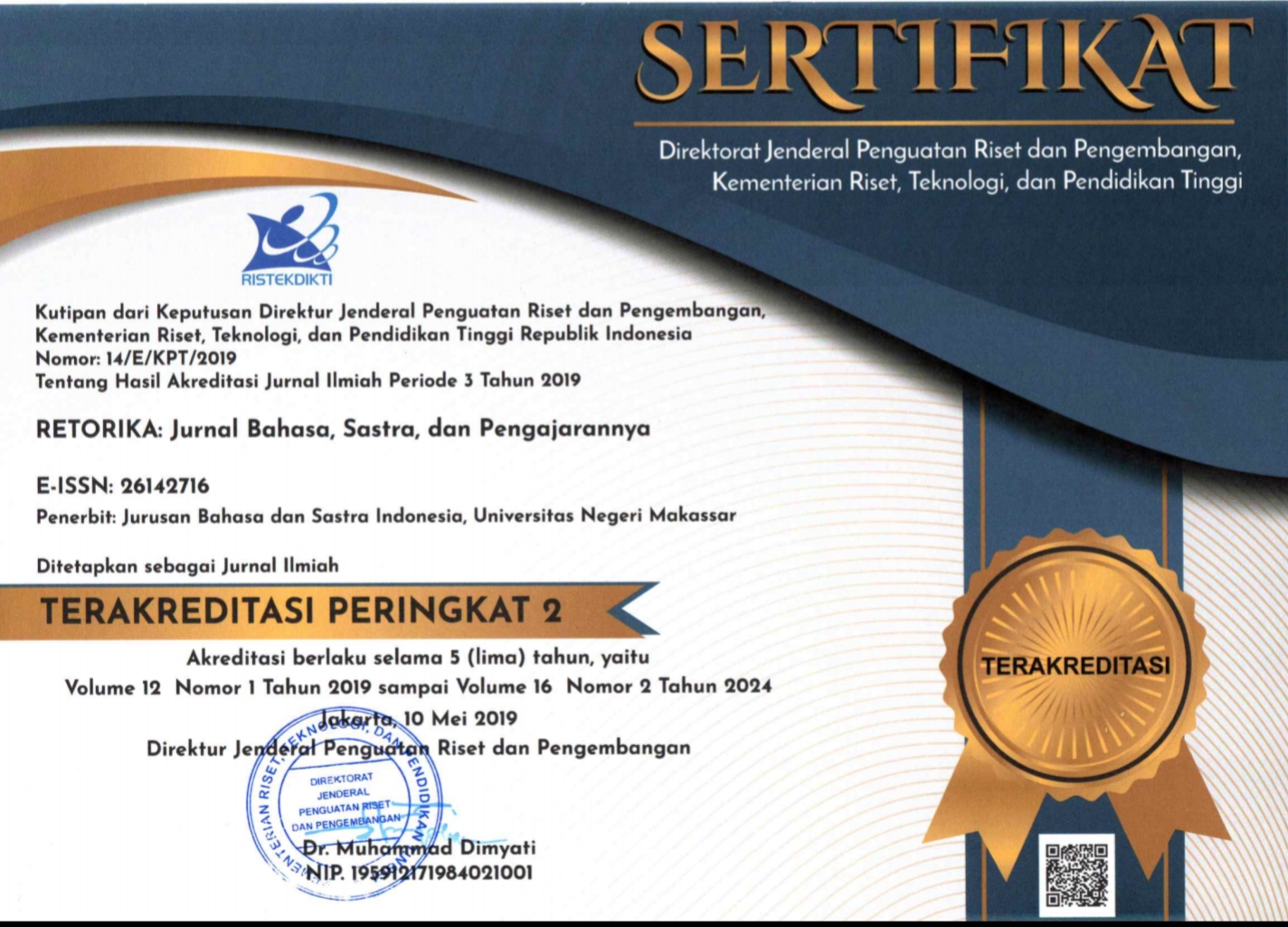THE EFFECT OF THE CHAIN WHISPER GAME ON CHILDREN’S RECEPTIVE LANGUAGE SKILLS
Herman Herman
(1*), Sulaiman Samad
(2), Fitriani Dzulfadhilah
(3),
(1) Universitas Negeri Makassar
(2)
(3)
(*) Corresponding Author

DOI:
https://doi.org/10.26858/retorika.v15i2.40412
Abstract
This study aims to investigate the effect of the chain whisper game on children’s receptive language skills. This study used a quasy-experimental design. The population in this study was all the students at
Teratai Integrated Preschool in Makassar. With purposive sampling technique, the sample of this study was 12 students that were divided into 6 students in the experimental group and 6 students in the control group. The data was collected by conducting observations, tests, and documentation and then analyzed using descriptive statistical and nonparametric statistical methods. The results showed that the value of Asym (2-tailed) was 0.005 < 0.05, meaning that H
1 was accepted and H
0 was rejected and indicating that there were differences in receptive language skills between the experimental group and the control group. These results suggest that the chain whisper game has a significant effect on young children’s receptive language skills.
Article Metrics
Abstract
view : 397 times |
PDF view :
162 times
Refbacks
- There are currently no refbacks.
Copyright (c)
Published by:
Department of Indonesian Language, Faculty of Languages and Literature, Universitas Negeri Makassar in cooperate with Asosiasi Dosen Bahasa dan Sastra Indonesia (ADOBSI) and Ikatan Program Studi Pendidikan Bahasa dan Sastra Indonesia (IKAPROBSI).
Address: Department of Indonesian Language Office, DG Building Second Floor, UNM Parangtambung, Daeng Tata Raya Street, Makassar, South Sulawesi, Indonesia
 Email: [email protected]
Email: [email protected]
e-ISSN 2614-2716
p-ISSN 2301-4768
Indexed by:
















RETORIKA: Jurnal Bahasa, Sastra,dan Pengajarannya is licensed under a Creative Commons Attribution-NonCommercial 4.0 International License.
 Email: [email protected]
Email: [email protected]
















